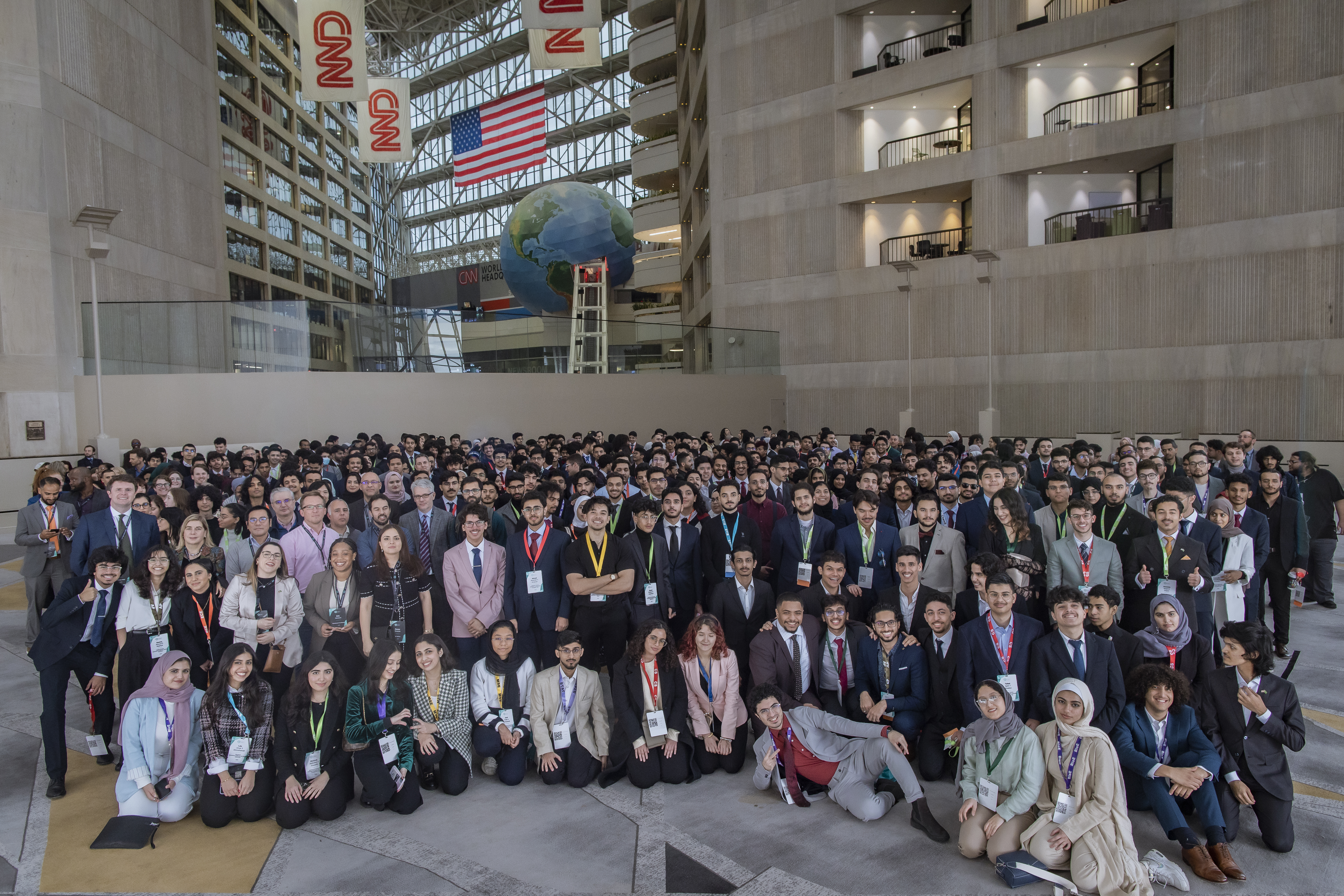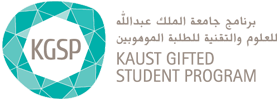A Conversation with the “Unbreakable” Eman Alhajji
7/17/2024
We are excited to present our Q&A with Eman Alhajji, PHD (Cohort 4, North Carolina State University, Material Science and Engineering), a visionary leader dedicated to fostering sustainability among Saudi youth. In this candid interview, Eman shares her journey from growing up in the diverse community of Al Jubail Industrial City to overcoming significant challenges and excelling in her academic and professional pursuits. Her story is one of resilience, passion, and an unwavering commitment to sustainability. Eman also discusses her roles at KAUST and McDonough Innovation, as well as her foundational work with Saudi Youth for Sustainability (SYS) and Students for Sustainability (S2). Her inspiring experiences and initiatives aim to empower young leaders and drive sustainable solutions throughout Saudi Arabia.
We invite you to learn more about Saudi Youth for Sustainability (SYS) and S2 and become a member by visiting their website: https://sys.kaust.edu.sa/
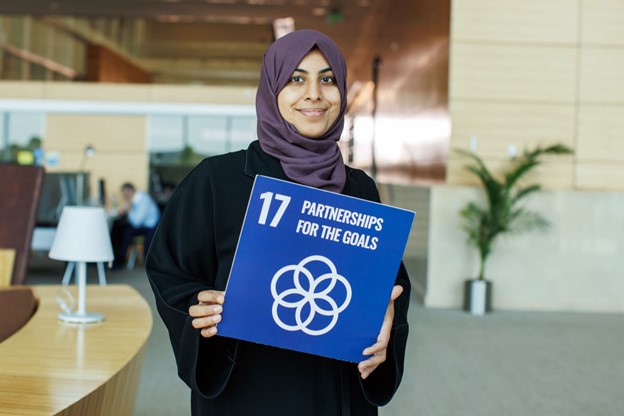
Image 1: Eman Alhajji PhD (Cohort 4, North Carolina State University, Material Science and Engineering).
Can you tell us a little bit about where you come from?
I grew up in Al Jubail Industrial City. It is a very diverse Saudi community with a mixed culture between Saudis and many other nations.
Since I was young, I always asked my dad “Why, why, why?” I was and I still am this crazy person who grew up finding connections and going beyond what is obvious.
When I was younger, I knew that I wanted to be an engineer. But at that time, there were no engineering schools for females. I thought that King Fahd University of Petroleum and Minerals (KFUPM) accepted females, but I was shocked that they did not at that time. I knew that I loved chemistry, physics, and engineering. I had this drive, but I didn't know where to go.
When KAUST called me about KGSP, I didn't know what KAUST was. I got married early in life; I was 16 when I got married and I had my first son in high school. They called me and said, “Eman, we sent you an email and you never responded to our invitation. Are you interested in going to the US?” I was like, “Wait, what? What are you saying? Who is talking?” They said, “We are KAUST, a university close to Jeddah,” and so on.
My husband and family were very supportive. My dad started asking around and talking to his friends at work and people who also studied abroad, and he told me, “Eman, this is the most prestigious scholarship you can get, so go for it.” I’m so glad I made that decision. I think it was the best gift in my life, honestly. It's opened a lot of doors for me, and it created who I am today.
What was your experience with KGSP like?
It was the best experience in my life, but it was very tough. I truly appreciate every chapter of my life with KGSP. The first year was the intensive English program when I went to Atlanta at Georgia Tech. I spoke almost no English, so I had to learn the language quickly so I could keep up with my colleagues who already knew English. There was a lot of pressure to prove that I fit in because I came from a governmental school, from middle class, and at that time my KGSP colleagues were in a better socio-economic status, let's say. I had to move much faster to catch up. In both my intensive English program and my Foundation Year, I was the only female. At that time in Saudi Arabia, we had almost no interaction with male colleagues. So, when I went to the US, it was totally the opposite.
My son was 8 months old. My husband spoke almost no English. We also had so many financial struggles during the first year of KGSP. We could not buy furniture because we had no money, and so we slept on the floor. There were so many challenges; not only studying, not only being the only female, not only financially, but in all aspects.
I remember one day, one of the guys told my husband, “We’re shocked that Eman succeeded, we thought she would fail.” It was a journey to prove that I’m strong enough. Capable enough. I can do it. I'm glad that I was given the opportunity to excel and finish on time, and graduate with a 4.4 GPA from North Carolina State University. I'm glad when I look back. I became the Eman I am today, and I now feel that I'm unbreakable and unstoppable.
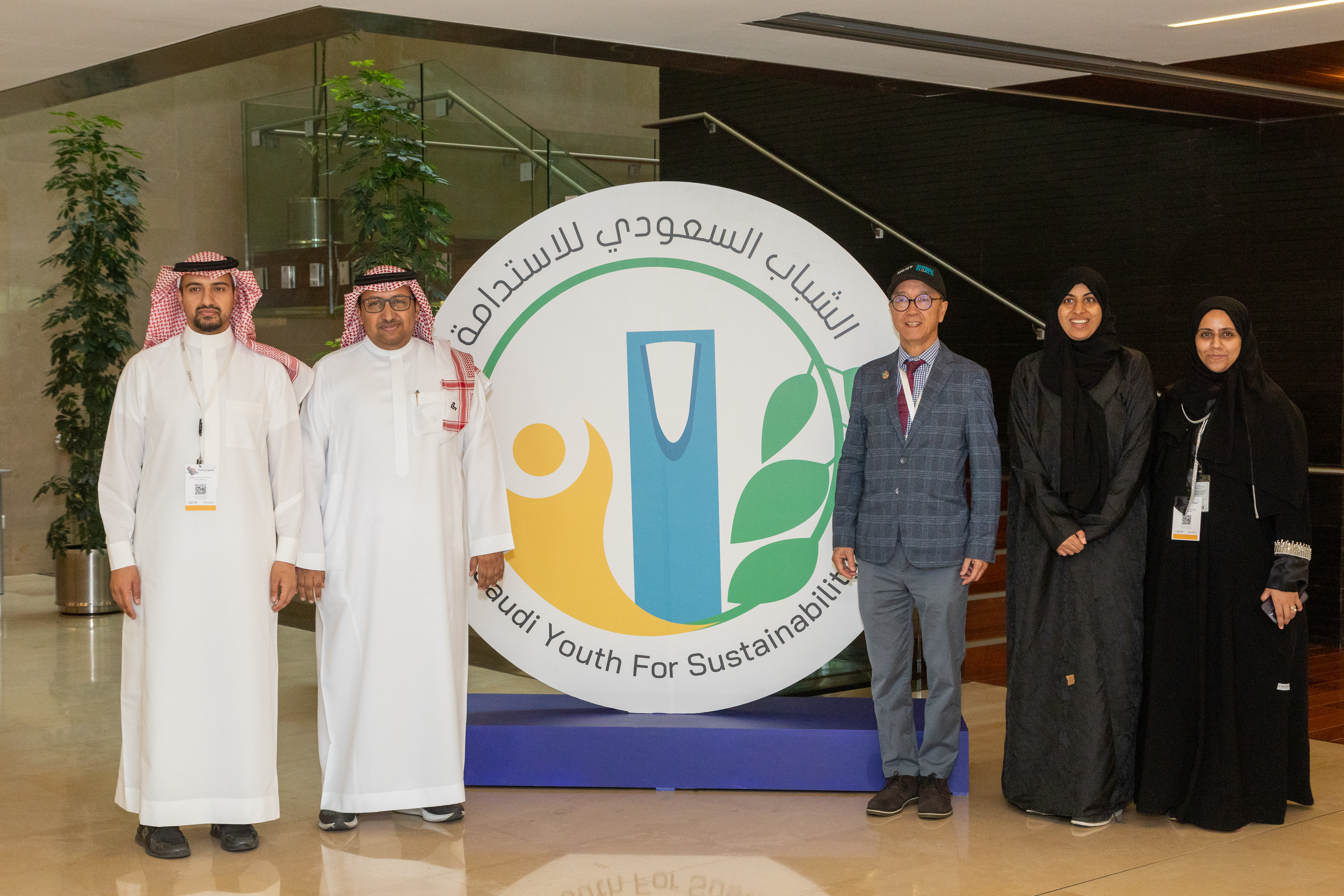
Image 2: Eman (second from right) at the Saudi Youth for Sustainability.
I think you just wrote the headline of the article. Can you share what you are up to these days?
I have three “hats” - let's say “hijabs.” The main “hijab” is a researcher at KAUST with William McDonough, who is a Distinguished Research Professor and who is also the intellectual father of circular economy. He has several projects and is a best-selling author of the book “Cradle to Cradle: Remaking the Way We Make Things”.
The second “hijab” is a part time job as an innovation strategist at McDonough Innovation. We do high-level industrial and governmental consultancy on strategies and frameworks. We mostly work on giga-projects in the kingdom, an interesting sphere where we see how things are progressing in this transition towards Vision 2030 and beyond. So, it's been a fascinating journey so far and I've been learning how to think in a creative way.
The third “hijab” is Saudi Youth for Sustainability (SYS). SYS is youth-led national organization that aims to empower young leaders, to drive effectively sustainable solutions towards a thriving future across the kingdom of Saudi Arabia. It was incubated on November 30th, 2021, by KAUST.
Unfortunately, sustainability became too diluted, and so popular that sometimes it’s lost its true meaning. True sustainability is the intersection between economy, society, and biosphere. We balance all these forces together, and then we can say, “this is sustainable”. Our vision is to be the most empowering force for youth sustainability advancement in the Kingdom.
We have four missions: to create seeds of youth, sustainability, organizations in the kingdom and empower youth to lead bottom-up changes. Second, promote national and international networking of young change makers in the kingdom to scale sustainable solutions. Third, advance and disseminate best practices of youth sustainability initiatives. And lastly, to foster knowledge sharing and creation and sustainable development and intergenerational stewardship.
We believe in the respectfulness of interdependence between humans and nature. We truly aspire, and always aim to be as inclusive and open as possible. We do not target only the elites, but we go to the small villages in the kingdom to have everyone included. We try to go to every small house in the kingdom to every young Saudi who has a passion to create good and in line with sustainability and Vision 2030. We're here to empower and give and support each other. We also believe in effectiveness. We're not here to create a show, but to “walk the walk”.
Can you tell us how you launched S2 and SYS?
I had this ignited passion within me to truly care about sustainability since I was an undergrad NC State. Then, when I came to KAUST in 2018, I always loved interdisciplinary and systematic thinking. Whenever I had a chance to do my elective courses, I went beyond my own focused field. I remember taking this course called “The Four E’s: Energy, Economy, Ecology, and Environment”. It was taught by Professor Tadeusz “Tad” Patzek, and I was taking another course at the same time called “Sustainable Engineering.” Professor Ana Margarida Costa, who was just appointed as the head of Sustainability at KAUST, organized “Let's Talk about Sustainability.” We went to graduate building 18, and we were just talking about what we can do together. So, we wrote down all the emails of those who attended. The next day, I sent an email, and I told them let's meet to create the charter. We had several weekly meetings to create the charter, did our own kind of brainstorming on the foundation of a graduate organization, collected signatures, and did all the admin work and strategic thinking to create initiatives. The opportunities came together to create “Students for Sustainability” or “S2”, which was the first sustainability organization founded for graduate students at KAUST. I served as the founding President. From the beginning, we were driven by impact; how we could create something that is impactful for ourselves and our society.
One of the first initiatives that we did was the Sustainability Seminars Series. From the beginning, I was really passionate about creating an open, transparent, dynamic atmosphere where everyone is welcome. We talked about controversial things in a safe place. We respected everyone.
We had so many initiatives and amazing interactions with all departments and beyond with the KAUST community. We had movie nights, collaborations with other departments, we did things in the diner, and designed the KAUST buses with the UN’s Sustainable Development Goals (SDGs).
I am still friends with the core founders today. They were from different fields, and we were very diverse in terms of nationalities as well. I was the only Saudi. There was one from the US, Russia, India, France, Azerbaijan, and Columbia. What united us is this greater cause to create impact towards a sustainable and thriving future. And we did it with so much passion and love. I'm glad that it's still running today beyond me and the founders. It’s beautiful to see now we have the fifth generation of S2. Now we have the fifth president, and so it's beautiful to see that you can plant a seed, and it grows by itself. That means maybe I did something good for society.
What was the process for partnering with KAUST to get SYS started as a national initiative?
We wanted to go step-by-step. First, find something for our community and see its impact. Then, after we saw the tremendous amount of potential and amazing impact we created, we wanted to go beyond KAUST’s walls. We looked around to see if there are any national organizations that were formed. We saw none. So we said, “Okay, then we have to start it on our own.” So, we started SYS as a national initiative. And when we wrote the proposal, we brought it to KAUST leadership through the Office of Sustainability. We talked to the provost, and it was adopted with so much generosity, care, and support from KAUST leadership. We had full autonomy and making decisions. Our request was that it be designed, initiated, and delivered by youth for youth.
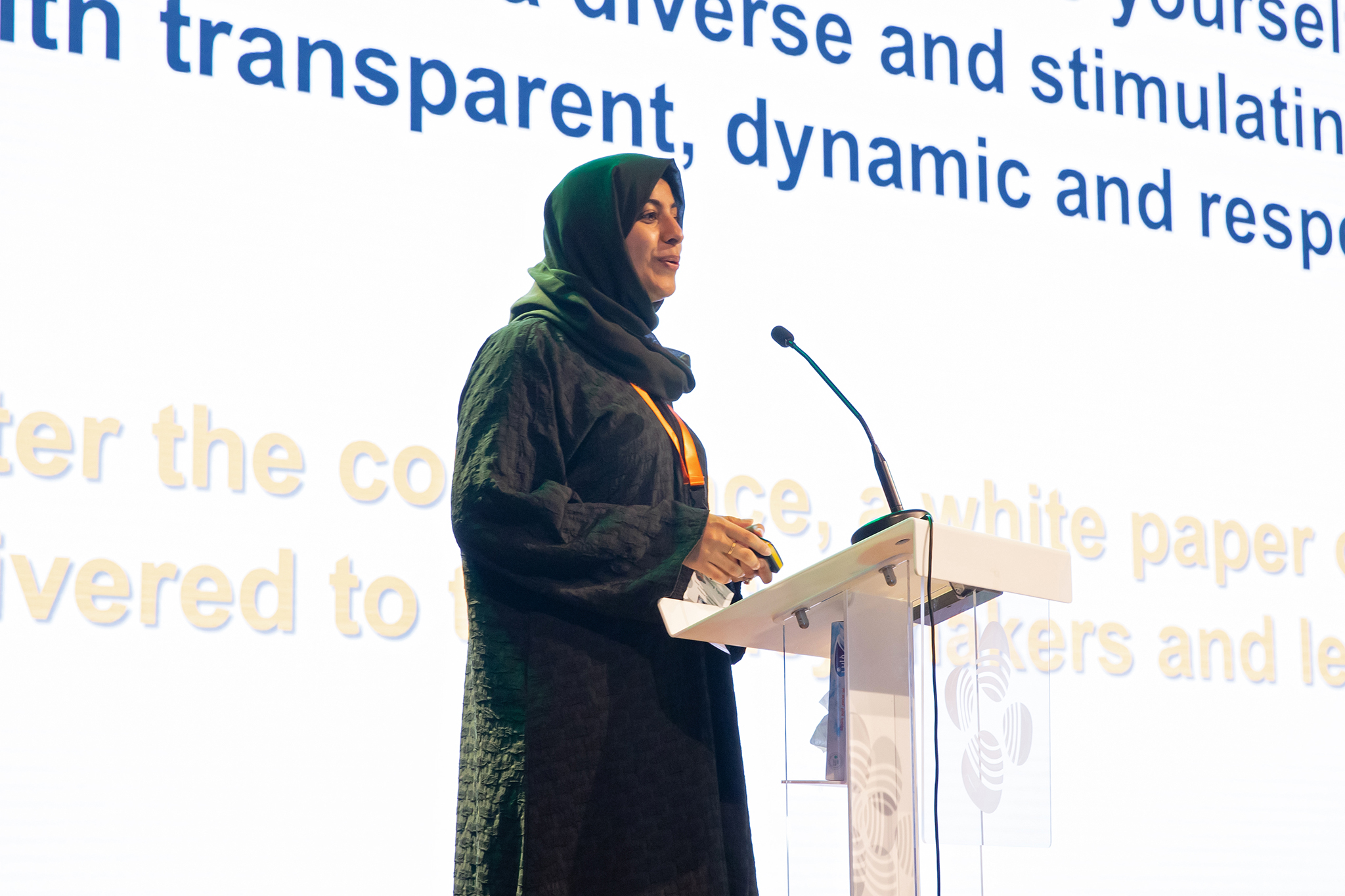
Do you have a vision of where S2 and SYS are going? Are there any current events or initiatives that you're working on?
S2 is more KAUST-contained for the KAUST community. SYS is a national initiative that encompasses everything, including S2, to make connections between different parts of the kingdom.
KAUST, with its talented community, acts as a beacon of youth and momentum in the kingdom. KAUST will foster its growth until the association can self-sufficiently prosper. We just submitted our NGO application to be independent from KAUST so we could fly as far as we like. I think this is where our maturity will be, but we will always be partnering with KAUST.
In terms of programs, they are dynamic based on demand. If we see our society demanding certain aspects, we do more of it. We currently have about 3,000 members across the Kingdom. We call them Young Change Makers, Impact Supporters, and Groups. Young Change Makers are university, high school students, and early professionals. Impact Supporters are those experts who love to support these Young Change Makers and transfer their knowledge and skills to them. Groups are social or university groups that are localized in different locations, and we have about 18 to 20 Groups so far. S2 is one of these Groups. In terms of programs, we have the Leaders Program where we empower young leaders to exchange opportunities and challenges in youth initiatives. We meet every three months over Zoom. We meet with the group leaders of these 18 Groups. We also have “Sustainable Consciousness” which is a workshop to help create innovative products and services for sustainable development aligned with Vision 2030, and it's delivered in Arabic. We have “Energy Voice”, which is a full day experience in the future of energy which also rotates across campuses across locations in the Kingdom to provoke Saudi youth to rethink energy, sustainability, and its future. We hosted the first one at KAUST, the second one at KFUPM, and we're going to Riyadh and different locations in the Kingdom as well. We have “Sustainable Healthcare”, which is a niche market to showcase that sustainability touches everything in our life, including our health. We also have our annual conference and special talks similar to what we did at KAUST’s Sustainability Seminar Series, but this one is at special locations.
How can current KGSP students or Alumni get involved with what you're doing?
There is so much potential that we could unlock together. There is a huge potential for KGSP Alumni to be a force for good. We have KGSP people leading some of these initiatives that I mentioned. For example, “Energy Voice” is led by Mohammed Almomtan (Cohort 4, Iowa State University of Science and Technology, Mechanical Engineering).
We have several engagements because the idea is to empower and connect. So, if [KGSP students] want to be connected, we also have WhatsApp groups for opportunities that are either national or international. They could benefit from being in our network where they could see more opportunities directed into this sustainability framework. So yes, we welcome them to become a member, because these are brilliant minds that could add a lot.
What advice would you like to share with KGSP students and Alumni who are reading this article?
Number one: appreciate and know that every single thing that happens to you is meant for you. You're in this pack because you deserve it, because you're capable.
Number two: always balance the four “Ls” in life: to live, to love, to learn, and to leave a legacy. If every single day you did some kind of action toward all these, you'll be more balanced. You'll see yourself beyond any title or any position. You'll start appreciating who you are, not what other people see.
STUDENT PROFILE
KGSP students represent the Kingdom of Saudi Arabia’s future scientists, engineers, entrepreneurs, and thought-leaders. As both individuals and as a community, they reflect the KAUST mission of driving scientific discovery through excellence in education and cutting-edge research, and share a commitment to fostering innovation, economic development, and social prosperity throughout the Kingdom and the world.
ADMISSIONS REQUIREMENTS
Selection to the KGSP is extremely competitive, and currently by invitation only. Successful applicants are Saudi Arabian students in their final year of high school who demonstrate impressive academic credentials within STEM fields, meaningful extra-curricular achievements, and who share the KAUST ethos of continuous discovery. Learn more here.
KGSP ADMINISTRATION
The KGSP is administered by KAUST Academy under the leadership of Dr. Sultan Al-Barakati. KAUST Academy is mandated by KAUST to support the acceleration of Saudi Arabia's knowledge-based economy by providing world class training programs in emerging technologies aligned with Vision 2030. KAUST Academy crafts these unique learning interventions by exporting the intellectual DNA acquired by KAUST for the benefit of the entire Kingdom.
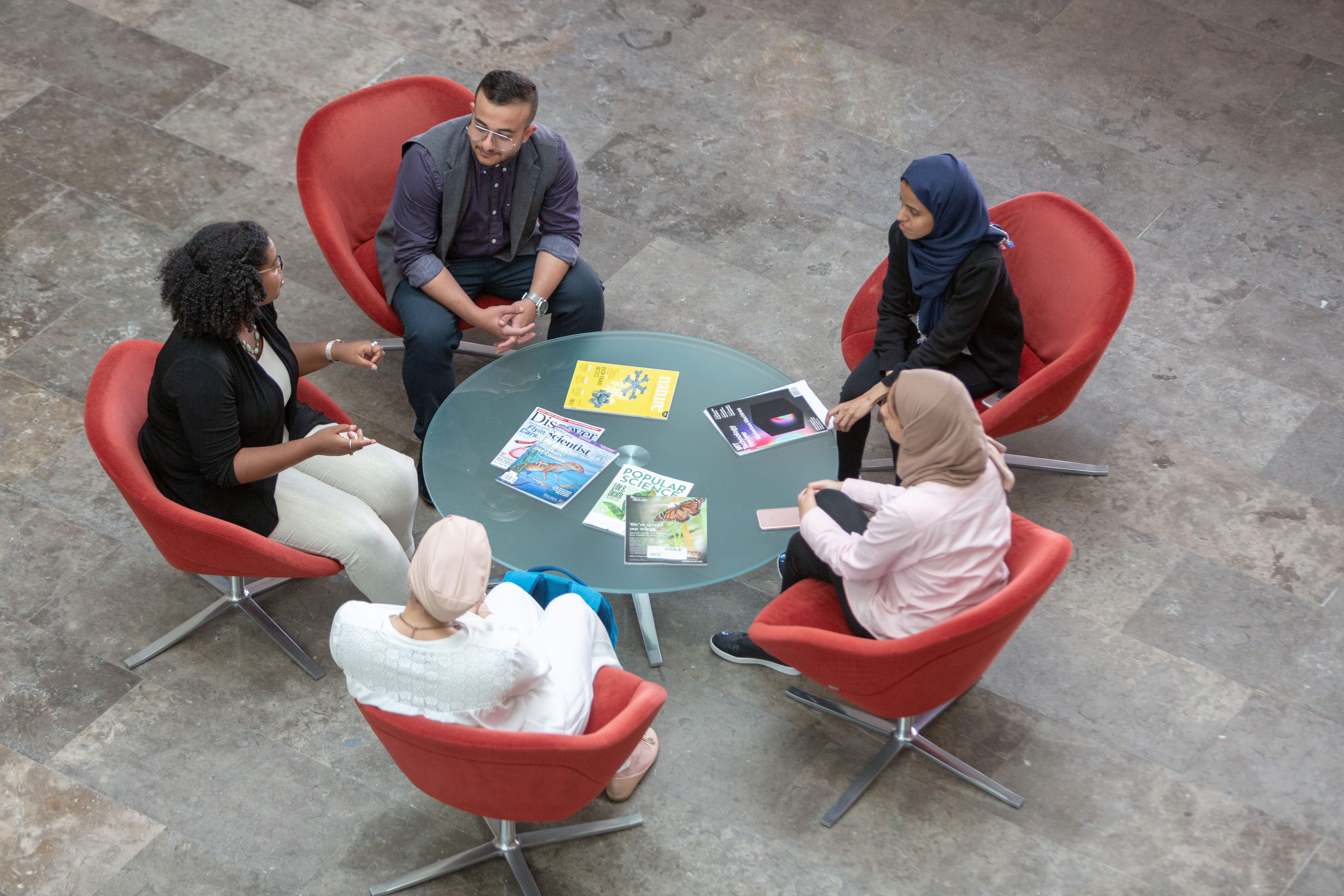
—King Abdullah bin Abdulaziz al Saud
1924 – 2015
